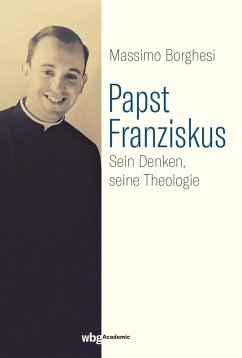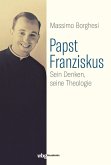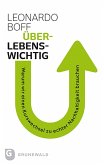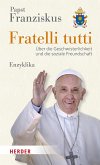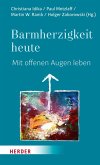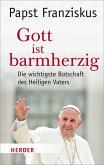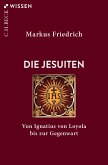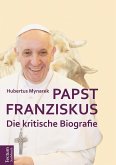Er ist der erste Nicht-Europäer im Amt des Papstes seit dem 8. Jahrhundert: Jorge Mario Bergoglio, der 2013 als erstes Mitglied des Jesuiten-Ordens die Nachfolge von Papst Benedikt XVI. antrat. Seine Amtsführung überrascht, denn der frühere Erzbischof von Buenos Aires kann nicht in europäische und noch weniger in italienische Schubladen gesteckt werden.
Professor Massimo Borghesi zeichnet in seinem Buch erstmals die Ausbildung von Papst Franziskus nach und beschreibt die philosophischen, theologischen und spirituellen Prinzipien, die sein Denken und Handeln prägen.
- die erste Biographie des Papstes, die sich seinem intellektuellen Werdegang widmet
- Ignatius von Loyola, Gaston Fessard, Romano Guardini und Alberto Methol Ferré: theologische und philosophische Werke, die den Papst geprägt haben
- Seine Vision des Katholizismus und die Idee der Kirche als coincidentia oppositorum
- Verwurzelung oder Gegensatz: seine theologischen Prinzipien zwischen Lateinamerika und Westeuropa
- Eine Hilfe zum Verständnis des Papstes, geschrieben von Massimo Borghesi, der dem Papst schon lange nahe steht
Ein guter Hirte mit klarer Sprache und komplexem theologischen Denken
Mit seiner Freundlichkeit, seiner einfachen Sprache und seiner direkten Art berührt der "Papst der Gegensätze" die Herzen der Gläubigen. Doch Papst Franziskus ist mehr als ein guter Hirte, der ein offenes Ohr für die Sorgen der Menschen hat, und der die großen Herausforderungen der Kirche im Zeitalter der Globalisierung angeht.
Massimo Borghesi, Professor für Moralphilosophie an der Universität Perugia, hat die intellektuelle Biographie des Papstes geschrieben, dessen Wurzeln in der Schule der Jesuiten liegen. Fundiert stellt er dar, welch enorme theologische und philosophische Bildung ihn für das Amt des Pontifex maximus befähigt und wie es ihm damit gelingen kann, eine Brücke zwischen Lateinamerika und Europa zu schlagen.
Dieser Download kann aus rechtlichen Gründen nur mit Rechnungsadresse in A, B, BG, CY, CZ, D, DK, EW, E, FIN, F, GR, HR, H, IRL, I, LT, L, LR, M, NL, PL, P, R, S, SLO, SK ausgeliefert werden.

